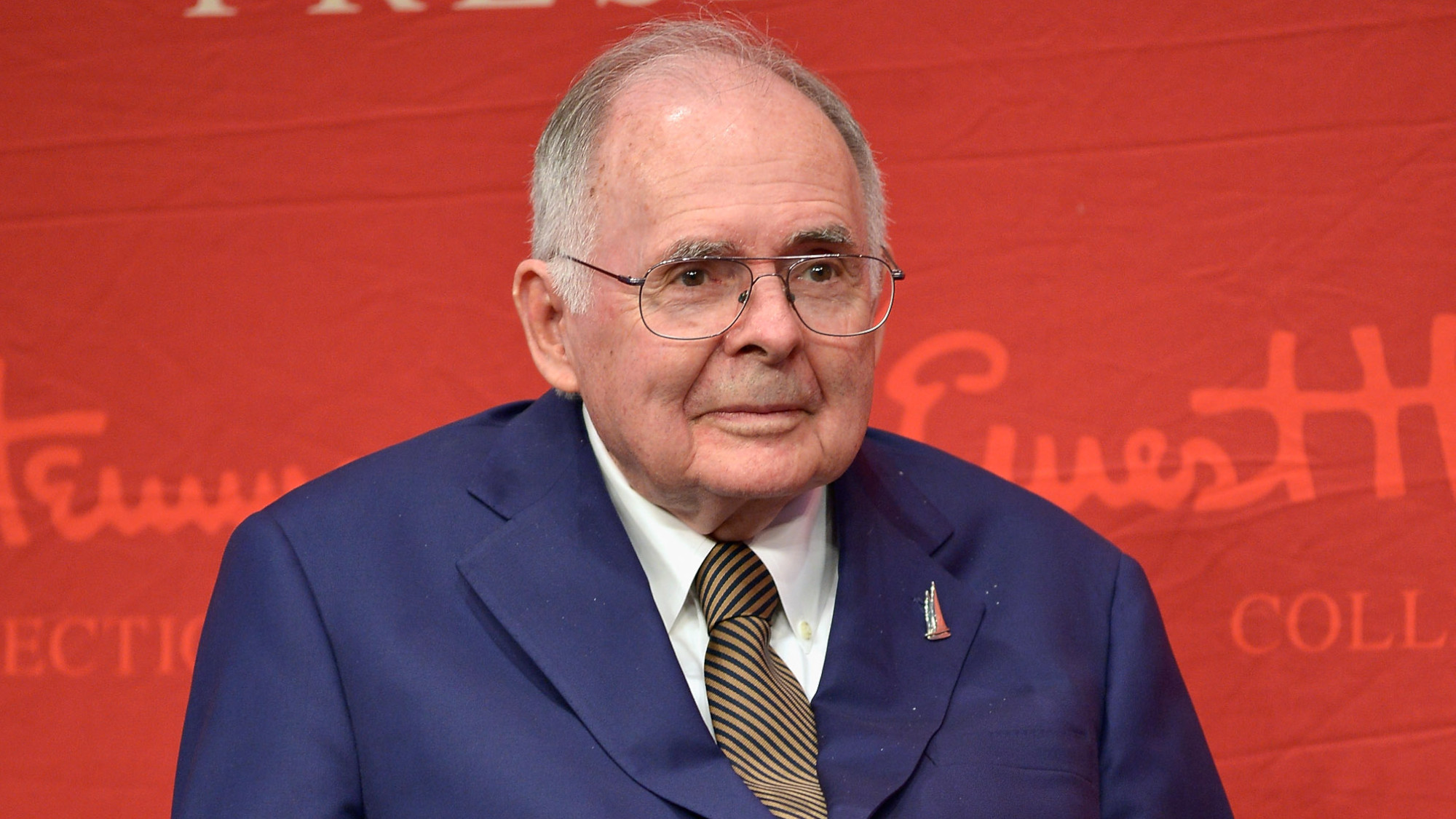Norman Borlaug
The Nobel scientist whose crops fed the masses
A free daily email with the biggest news stories of the day – and the best features from TheWeek.com
You are now subscribed
Your newsletter sign-up was successful
Norman Borlaug, who has died at 95, arguably saved more lives than anyone in history by ushering in the “Green Revolution.” A plant scientist, he kept as many as a billion people from starving by developing superior crop strains that enabled much of the globe to feed itself. For his efforts, he won the 1970 Nobel Peace Prize.
Born on a farm in Cresco, Iowa, Borlaug earned a doctorate in plant pathology at the University of Minnesota, said The Washington Post. “In 1944 he joined a team assembled by the Rockefeller Foundation at the request of the Mexican government to increase wheat production in that country.” It was a major undertaking: Between 1939 and 1942, Mexico’s wheat harvest had been devastated by stem rust, an airborne virus. So Borlaug crossbred wheat strains from around the world, a process he called “mind-warpingly tedious.” And he countered Mexican wheat’s tendency “to grow so tall that the stalks fell over” by crossing it with a dwarf Japanese variety. By 1948 Mexico, which had imported half its wheat when Borlaug arrived, “was growing enough to meet its needs.”
Borlaug’s pioneering work, which was soon applied to corn, rice, and other crops, “brought agricultural self-sufficiency to developing countries,” said the Los Angeles Times. This became especially apparent in 1965, when Borlaug “organized a shipment of 35 truckloads of dwarf wheat seeds” to famine-stricken India and Pakistan. The new crop was a success, and “by 1968, Pakistan was self-sufficient in food production. India joined it in 1974.”
The Week
Escape your echo chamber. Get the facts behind the news, plus analysis from multiple perspectives.

Sign up for The Week's Free Newsletters
From our morning news briefing to a weekly Good News Newsletter, get the best of The Week delivered directly to your inbox.
From our morning news briefing to a weekly Good News Newsletter, get the best of The Week delivered directly to your inbox.
In his later years, said The New York Times, Borlaug faced critics who said the Green Revolution had “displaced smaller farmers, encouraged overreliance on chemicals, and paved the way for greater corporate control of agriculture.” He shot back “that such arguments often came from ‘elitists’ who were rich enough not to worry about where their next meal was coming from.” He also argued that “the real problem was not his agricultural techniques but the runaway population growth that had made them necessary.”
A free daily email with the biggest news stories of the day – and the best features from TheWeek.com
-
 The ‘ravenous’ demand for Cornish minerals
The ‘ravenous’ demand for Cornish mineralsUnder the Radar Growing need for critical minerals to power tech has intensified ‘appetite’ for lithium, which could be a ‘huge boon’ for local economy
-
 Why are election experts taking Trump’s midterm threats seriously?
Why are election experts taking Trump’s midterm threats seriously?IN THE SPOTLIGHT As the president muses about polling place deployments and a centralized electoral system aimed at one-party control, lawmakers are taking this administration at its word
-
 ‘Restaurateurs have become millionaires’
‘Restaurateurs have become millionaires’Instant Opinion Opinion, comment and editorials of the day
-
 Catherine O'Hara: The madcap actress who sparkled on ‘SCTV’ and ‘Schitt’s Creek’
Catherine O'Hara: The madcap actress who sparkled on ‘SCTV’ and ‘Schitt’s Creek’Feature O'Hara cracked up audiences for more than 50 years
-
 Bob Weir: The Grateful Dead guitarist who kept the hippie flame
Bob Weir: The Grateful Dead guitarist who kept the hippie flameFeature The fan favorite died at 78
-
 Brigitte Bardot: the bombshell who embodied the new France
Brigitte Bardot: the bombshell who embodied the new FranceFeature The actress retired from cinema at 39, and later become known for animal rights activism and anti-Muslim bigotry
-
 Frank Gehry: the architect who made buildings flow like water
Frank Gehry: the architect who made buildings flow like waterFeature The revered building master died at the age of 96
-
 R&B singer D’Angelo
R&B singer D’AngeloFeature A reclusive visionary who transformed the genre
-
 Kiss guitarist Ace Frehley
Kiss guitarist Ace FrehleyFeature The rocker who shot fireworks from his guitar
-
 Robert Redford: the Hollywood icon who founded the Sundance Film Festival
Robert Redford: the Hollywood icon who founded the Sundance Film FestivalFeature Redford’s most lasting influence may have been as the man who ‘invigorated American independent cinema’ through Sundance
-
 Patrick Hemingway: The Hemingway son who tended to his father’s legacy
Patrick Hemingway: The Hemingway son who tended to his father’s legacyFeature He was comfortable in the shadow of his famous father, Ernest Hemingway